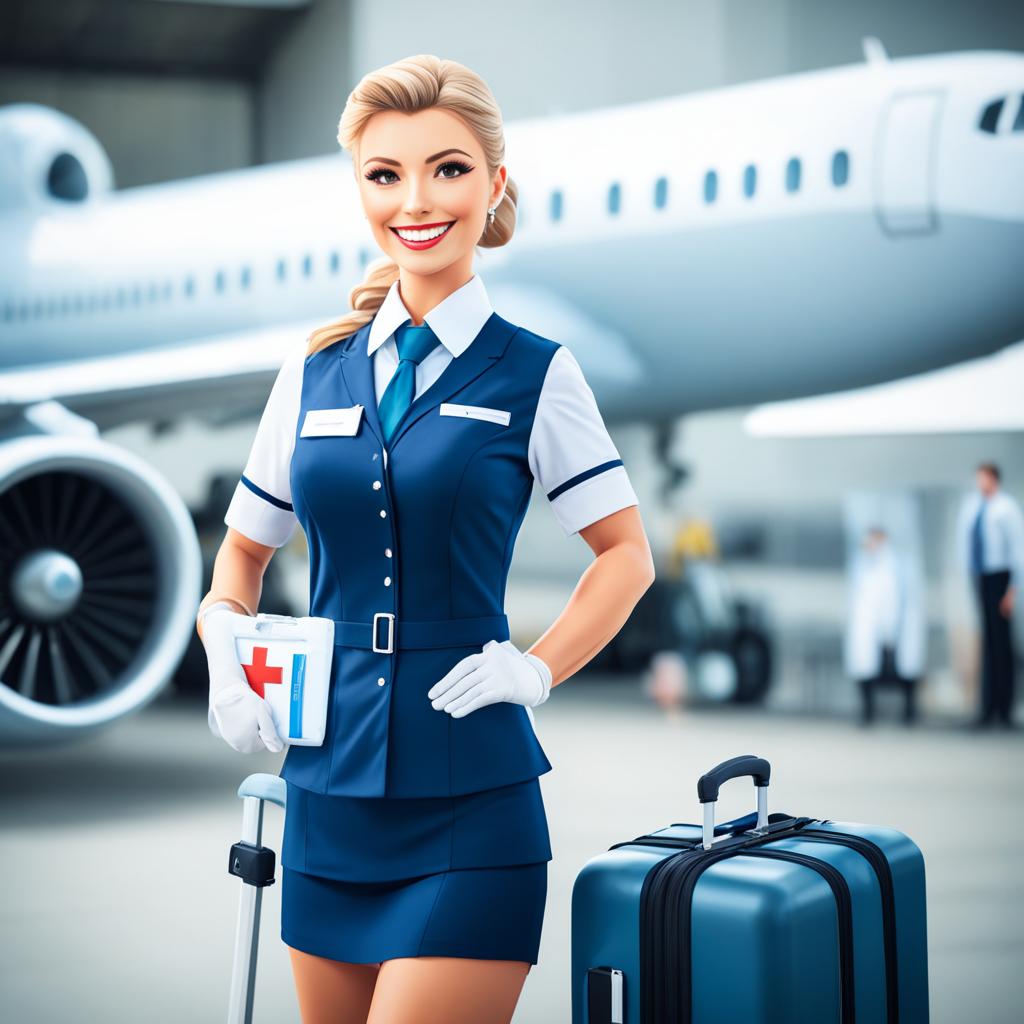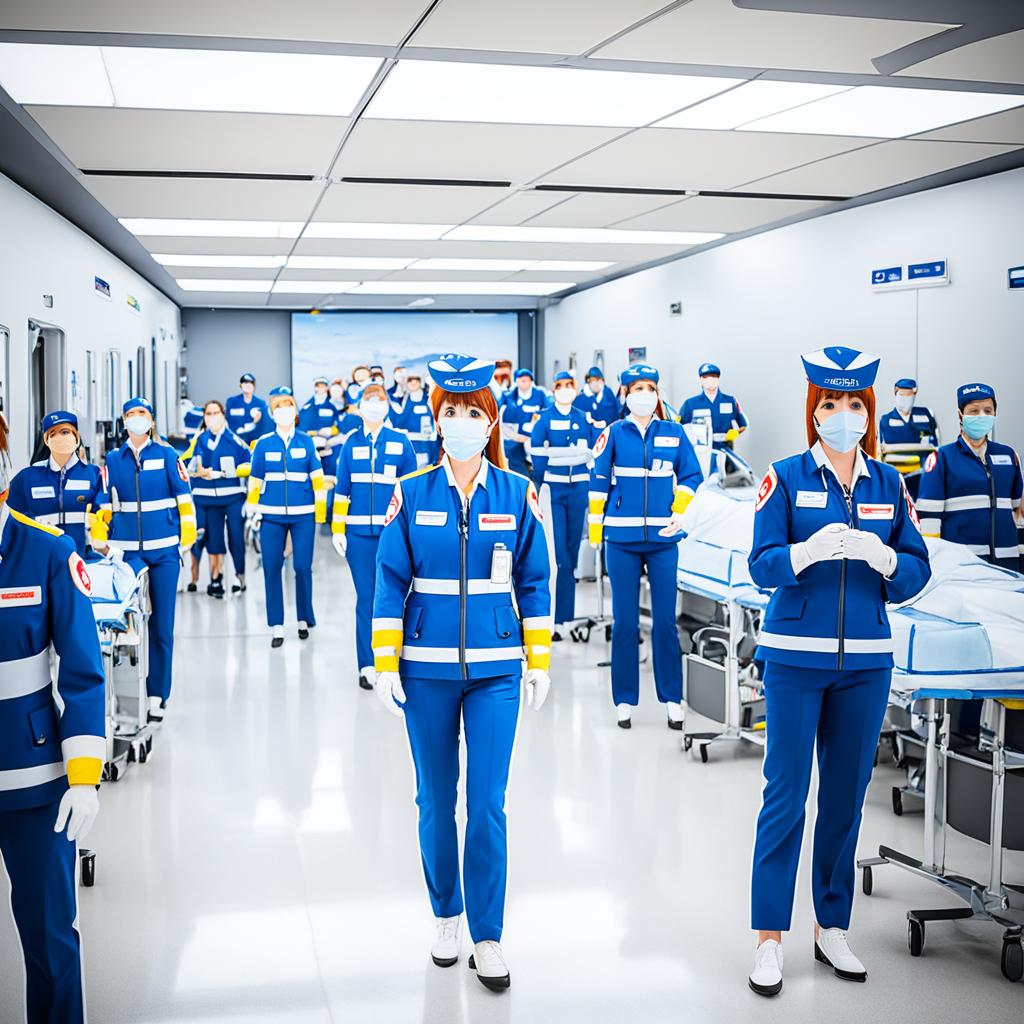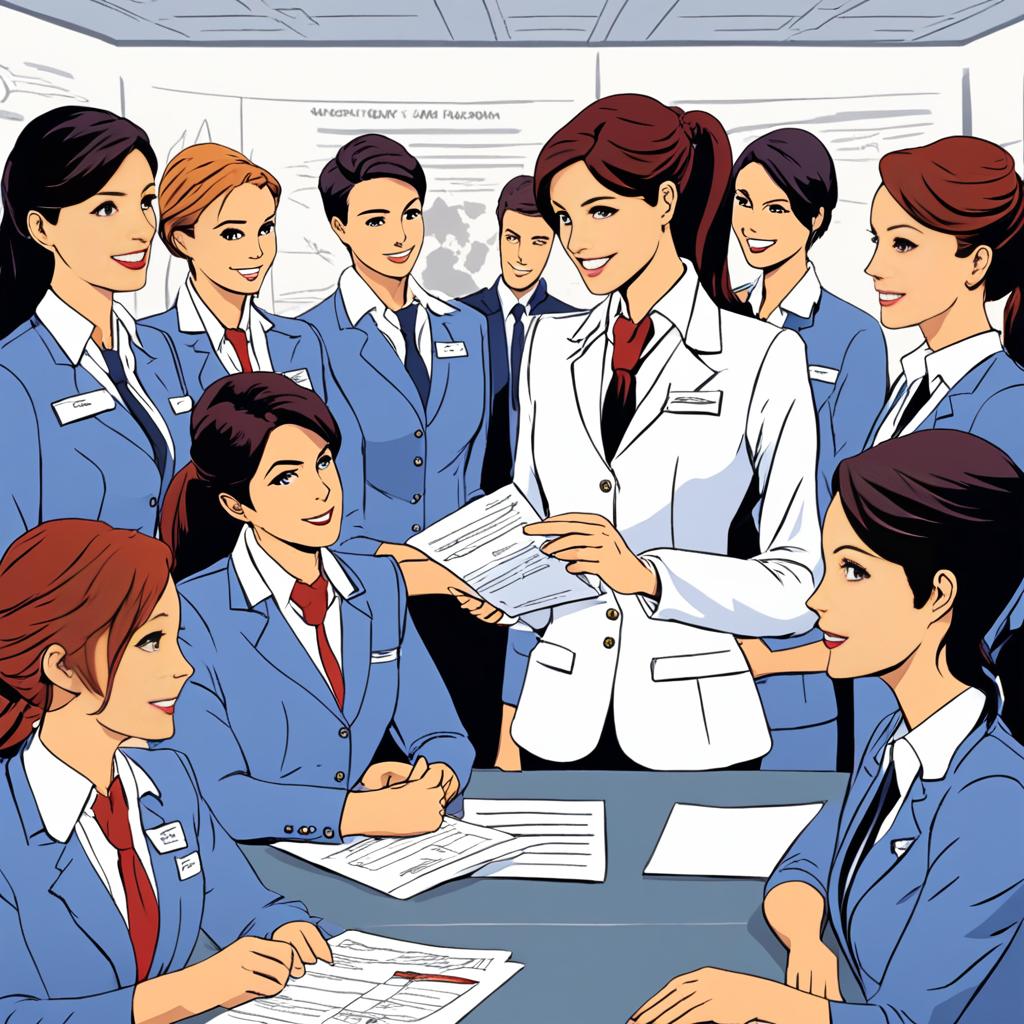Becoming a flight attendant requires more than just a passion for travel and customer service. There are specific exams and qualifications that you need to meet in order to pursue a career in this thrilling profession. Let’s explore the necessary exams and requirements for becoming a flight attendant.
When it comes to becoming a flight attendant, there is a common misconception that it is an easy, glamorous job with no stringent requirements. However, the reality is quite different. So, what exams do you actually need to pass in order to become a flight attendant? Are there any specific qualifications that airlines look for?
In the following sections, we will delve into the age requirements, physical fitness exams, educational requirements, and training programs that are essential for aspiring flight attendants. We will also discuss the job application process, interviews, additional requirements, and the benefits of pursuing a career as a flight attendant.
If you’ve ever dreamed of working in the skies, this article will provide you with valuable insights and help you understand the path to becoming a flight attendant. Let’s start by exploring the exams and qualifications that will set you on your way to this exciting profession.
Age Requirements and Physical Fitness Exams

When it comes to pursuing a career as a flight attendant, there are no specific age limitations. In fact, airlines often appreciate older applicants who bring work experience and maturity to the role. However, while age may not be a barrier, there are certain health and physical fitness requirements that you must meet.
One of the key aspects of meeting these requirements is passing a medical exam. This examination ensures that you are fit to perform the demanding tasks and responsibilities of a flight attendant. It assesses your overall health, including factors such as cardiovascular fitness, respiratory health, and mental well-being.
In addition to the medical exam, good vision is essential for a flight attendant. You need to have clear and uncorrected vision, as well as the ability to perceive colors accurately. This is because you may be required to read safety manuals, identify emergency signs, and communicate effectively with both passengers and crew members.
Furthermore, as a flight attendant, you’ll be spending long hours on your feet, attending to passengers’ needs, ensuring their safety, and maintaining a comfortable environment throughout the flight. Therefore, physical fitness is vital. You should be able to stand, walk, and maneuver through the aircraft without difficulty, even during turbulence or unexpected situations. Additionally, strength and flexibility are important for tasks such as lifting and carrying heavy objects, reaching overhead compartments, and assisting passengers with mobility issues.
Physical Fitness Requirements:
| Requirement | Description |
|---|---|
| Cardiovascular Fitness | The ability to maintain physical exertion for extended periods, without compromising your performance or safety. |
| Flexibility | A wide range of motion in your joints, allowing you to perform various tasks and respond quickly to emergency situations. |
| Strength | The capacity to lift and carry heavy items, such as luggage, emergency equipment, and supplies, to ensure the well-being of passengers and crew. |
Meeting these age requirements and physical fitness exams is crucial for a successful career as a flight attendant. They ensure that you’re capable of providing the highest level of customer service, safety, and comfort to passengers throughout their journey.
Educational Requirements and Training Programs

While a college degree is not required, most airlines require candidates to have a high school diploma or equivalent. This ensures that applicants have a basic level of education and are proficient in reading, writing, and communication skills.
Flight attendant training programs play a crucial role in preparing you for a career in the aviation industry. These programs are specifically designed to equip you with the necessary skills and knowledge to excel in the role. They typically last around 6 weeks and cover a wide range of topics, including:
- Safety Procedures: You will learn about emergency protocols, evacuation techniques, and how to handle various onboard situations. Safety is a top priority for airlines, and as a flight attendant, you will play a vital role in ensuring the well-being of passengers.
- Customer Service Skills: Providing excellent customer service is a key aspect of being a flight attendant. The training programs will teach you how to interact with passengers, address their needs, and handle challenging situations with professionalism and empathy.
- Medical Training: Flight attendants are often the first responders in the event of a medical emergency onboard. Training programs will provide you with the necessary knowledge and skills to handle medical situations, such as performing CPR and using onboard medical equipment.
- Cultural Sensitivity: In today’s diverse world, it is important for flight attendants to be culturally sensitive and respectful of passengers from different backgrounds. Training programs will help you develop an understanding of different cultures and customs, enabling you to provide an inclusive and welcoming environment for all passengers.
After completing the training program, you may need to obtain certification from the Federal Aviation Administration (FAA). This certification ensures that you meet the regulatory standards set by the FAA and are qualified to work as a flight attendant.
| Flight Attendant Training Programs | Duration | Topics Covered |
|---|---|---|
| XYZ Airlines | 6 weeks |
|
| ABC Airlines | 8 weeks |
|
| DEF Airlines | 4 weeks |
|
Job Application Process and Interviews

To pursue a career as a flight attendant, you need to navigate through the job application process and successfully complete the interviews. This section will provide insights on how to prepare for the application and interview stages, equipping you with the necessary knowledge to stand out from the competition.
Flight Attendant Job Application
When applying for a flight attendant position, it is important to submit a well-crafted resume and, in some cases, a cover letter. Your resume should highlight your relevant skills, experience, and education. Emphasize your customer service abilities, language proficiency, and any previous work experience that demonstrates your ability to handle diverse situations and provide exceptional care to passengers.
Pro Tip: Tailor your resume to the specific airline you are applying to. Research the company values and incorporate them into your application materials to demonstrate your dedication and alignment with their brand.
Flight Attendant Interviews
Once you’ve submitted your application, the next step is the interview process. Interviews may be conducted in person or through video calls, depending on the airline. During the interview, airlines evaluate your communication skills, customer service aptitude, and overall fit for the flight attendant role. They may ask you about your problem-solving abilities, handling challenging situations, and working effectively in a team.
Pro Tip: Prepare for the interview by researching common flight attendant interview questions and practicing your responses. Consider showcasing your interpersonal skills, adaptability, and ability to handle high-pressure situations.
It’s essential to dress professionally for the interview, projecting a polished and well-groomed appearance. Maintain eye contact, speak clearly, and exhibit confidence throughout the interview. Airlines seek individuals who embody their brand image and can provide exceptional service to passengers.
Top Interview Tips for Flight Attendant Candidates
| Tip | Description |
|---|---|
| Research | Thoroughly research the airline and its values to demonstrate your knowledge and alignment with their brand. |
| Dress Professionally | Wear appropriate attire that reflects professionalism and aligns with the airline’s dress code. |
| Showcase Interpersonal Skills | Highlight your ability to communicate effectively, build rapport, and handle diverse passenger needs. |
| Stay Calm and Confident | Project confidence, maintain composure, and handle high-pressure situations with ease. |
| Demonstrate Adaptability | Highlight your flexibility and willingness to work irregular schedules and adapt to changing circumstances. |
| Highlight Language Proficiency | If you are fluent in multiple languages, emphasize your language skills, as they can be a valuable asset. |
| Express Passion for Customer Service | Showcase your dedication to providing exceptional customer service and going above and beyond for passengers. |
Additional Requirements and Benefits
Alongside the essential exams and qualifications, aspiring flight attendants should be aware of additional requirements set by airlines. These may include thorough background checks and drug tests to ensure the safety and security of passengers and crew. By fulfilling all these requirements, you can embark on an exciting career as a flight attendant.
Once you become a flight attendant, you can enjoy a range of benefits that make this profession even more rewarding. One of the most coveted perks is the ability to travel for free or at a discounted rate on both domestic and international flights. This allows you to explore new destinations and experience different cultures without breaking the bank.
Furthermore, flight attendants often receive performance-based bonuses, which can be a great motivation for providing exceptional service onboard. Paid time off is also a benefit that many flight attendants appreciate, allowing them to rest, recharge, and spend quality time with family and friends. Additionally, airlines may offer retirement planning options to ensure long-term financial stability.
The salary of a flight attendant can vary depending on factors such as the airline and level of experience. However, it typically ranges from $18 to $26 per hour. In addition to the financial compensation, the perks of being a flight attendant, including the ability to see the world, make it a sought-after career for many who are passionate about travel and customer service.
FAQ
Q: What exams do you need to become a flight attendant?
A: To become a flight attendant, you may need to pass a medical exam, have good vision, and meet certain physical fitness requirements.
Q: What are the age requirements and physical fitness exams for becoming a flight attendant?
A: There is no age limitation for becoming a flight attendant. However, you need to meet certain health and physical fitness requirements, including the ability to stand on your feet for long periods of time.
Q: What are the educational requirements and training programs for becoming a flight attendant?
A: While a college degree is not required, most airlines require candidates to have a high school diploma or equivalent. You may also need to complete a flight attendant training program, which typically lasts around 6 weeks and covers safety procedures, emergency protocols, and customer service skills.
Q: What is the job application process and interview like for becoming a flight attendant?
A: To become a flight attendant, you need to go through the job application process, which includes submitting your resume and potentially a cover letter. You may also need to pass interviews, both in person and sometimes via video call, where airlines assess your communication skills, customer service abilities, and overall suitability for the role.
Q: What are the additional requirements and benefits of being a flight attendant?
A: In addition to the exams and qualifications mentioned, airlines may have additional requirements such as background checks and drug tests. Once you become a flight attendant, you can enjoy benefits such as free or discounted travel, performance-based bonuses, paid time off, and retirement planning options.
